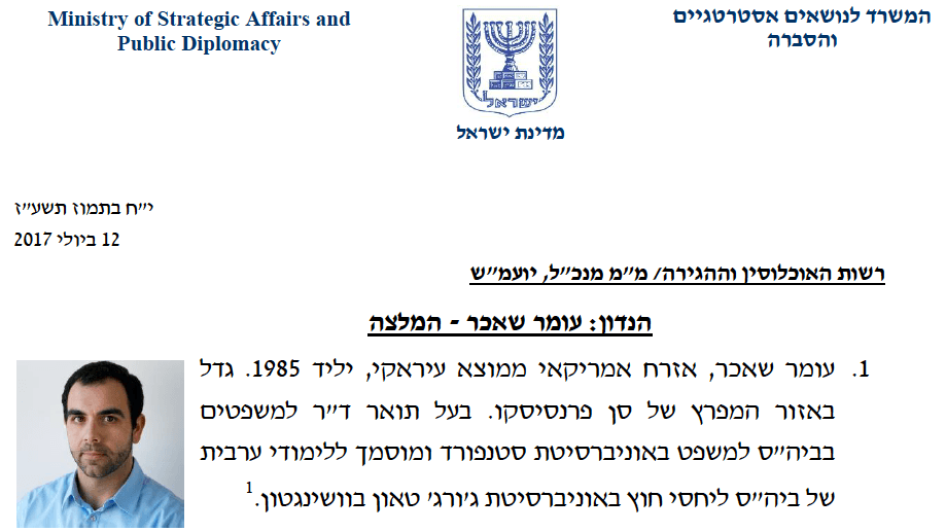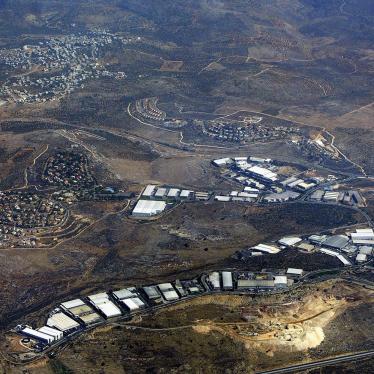This week, I attended a Jerusalem District Court hearing for Human Rights Watch’s appeal of the Israeli government’s decision to revoke the work permit of, and expel, our Israel and Palestine director, Omar Shakir.
Thirty years ago, I had Shakir’s job. I arrived during the first Intifada, the first of many Human Rights Watch researchers who, over the past 28 years, Israeli authorities have allowed to enter and work without obstacle – except for Gaza, which they have kept largely off-limits for the past decade. We have throughout this period documented and publicized abuses by Israeli authorities, the Palestinian Authority, Hamas, and Palestinian armed groups.
Israel’s policy shifted in 2017, when authorities initially denied us a permit to enable Shakir, a foreign national, to work locally on the grounds that the organization promotes “Palestinian propaganda.” They eventually relented, only to revoke his visa one year later on different grounds: 2017 legislation that empowers the Interior Ministry to deny entry to foreigners who call publicly for a boycott of Israel “or an area under its control.”
In court, the state attorney presented no evidence that Shakir, while employed by us, had advocated boycotts of Israel. Instead the state’s case rested mainly on Shakir’s tweets espousing our well-known position that businesses should halt their activities in illegal West Bank settlements, because this inevitably makes them complicit in violating the human rights of Palestinians.
The state also sought to separate Shakir from Human Rights Watch, which does not figure on its list of boycott organizations. It inaccurately claimed that Shakir was tweeting in a “private” capacity, whereas the organization encourages all of its researchers to tweet and requires them to reflect the group’s positions when doing so.
The judge will rule within weeks whether our efforts to stop businesses trading in the settlements warrants Shakir’s expulsion. The decision will come amid the backdrop of Israel’s tightening restrictions on the work of human rights groups.
Three decades ago, I did not imagine that today, the occupation, with all its abuses, would remain alive and well, much less that Israel might join the likes of Venezuela and Burundi in expelling our staff.
Yet another example of how its policies toward the West Bank and Gaza are narrowing the space for free expression within Israel itself.









